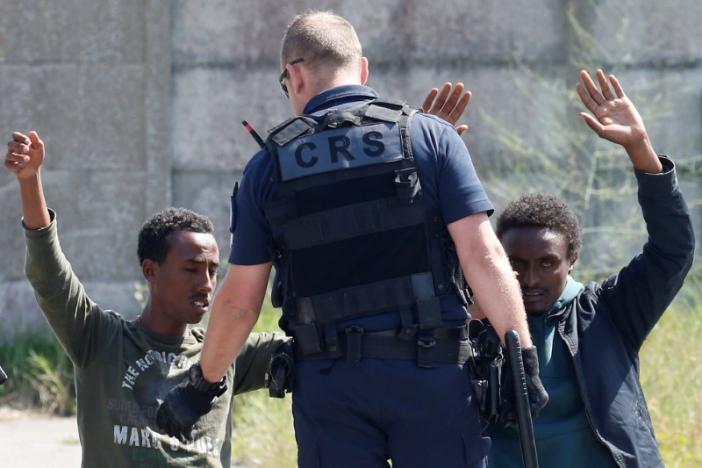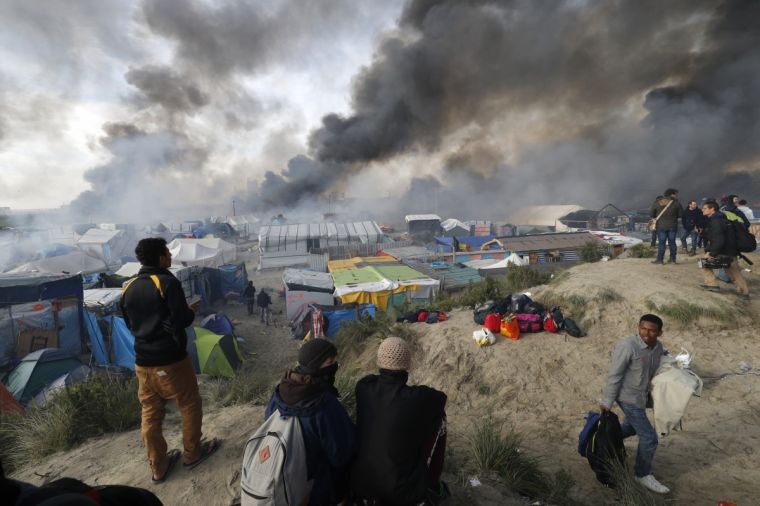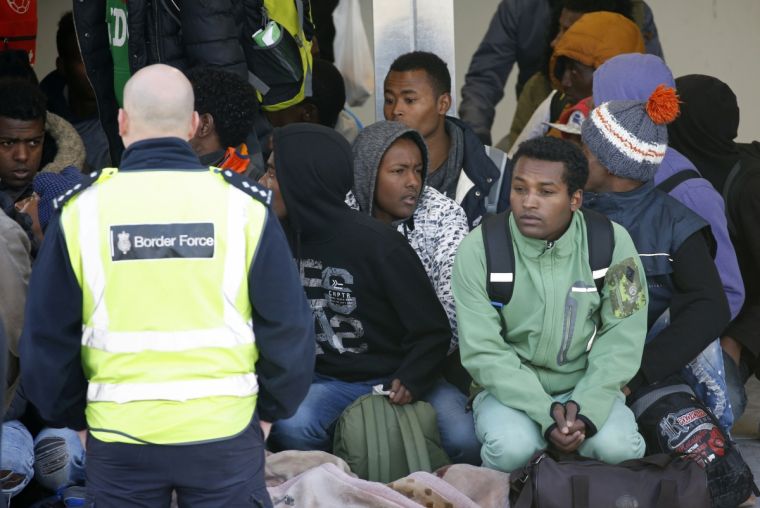Police in riot gear, aid being blocked: The plight of Calais's refugees may be worse than ever

The refugee 'jungle' of Calais in France is no more, but reports suggest the migration crisis is only worsening by the day.
Some optimism about Europe's refugee crisis was prompted when Calais's notorious 'jungle' camp was destroyed late last year. However, reports now suggest that the crisis for migrants has only worsened, with more than 1000 in need, and violence only aggravating their plight.
Christian Today spoke with Simon Jones, a pastor who has been working with volunteers and aid groups supporting refugees in Calais, and recently visited the region. Jones, who first arrived at 'the jungle' in summer 2015, described the current situation as 'chaotic' and 'unpredictable'.
He explained how: 'Since [the camp] was demolished in October, the situation on the ground in Calais has been fluid. The intention of the authorities was that everyone [at least 8,000 migrants] in the camp would go to an assessment centre, from which they would go to the French asylum system, another European country, or go home.'
However, Jones says the assessment centres were 'a very mixed bag'. Impoverished migrants returned to the area in December, and now around 4-500 are sleeping rough in and around Calais, with the numbers growing every week. The charity Seeking Sanctuary estimate as many as 1000 without shelter.
Aid groups have stepped up their support, continuing to provide sleeping bags, clothes and hot meals for those in need.
Security forces have escalated their efforts too. Jones says the 'Mayor of Calais and the prefect of the region have responded to the return of migrants with an entirely police-led response.'
That response, he says, has seen migrants 'pepper sprayed, beaten with batons if they stand still long enough, moved on from where ever they gather.
'Migrants will be stripped of sleeping bags and warm coats because they encourage them to sleep out. They're deprived of a base, harassed in various low-level ways, seemingly as matter of policy.'
While humanitarian groups offer sustenance for the migrant community, the building of shelters is banned, and Calais's prefect has 'decided that no food distribution can take place except in late afternoon'.
Seeking Sanctuary, who visited Calais last week, described the French police force (CRS) in 'full riot gear with helmets, shields, batons and automatic weapons'. They said that 'CRS police told volunteers that the distribution of clothes, food and water was forbidden, save between limited hours and to limited numbers of recipients. No written Instruction was produced, but large numbers of police have turned up to block every distribution.
'The experienced volunteers who go out to distribute aid are being physically and verbally attacked and treated like criminals. Associations have prepared these volunteers to be ready to perhaps end up in police custody just for handing out food and water to those in need.'

Jones elaborates on his experience of the 'casual brutality' of the CRS on his personal blog. The idea behind the aggression to refugees, he says, is that 'If life is made miserable for them, they will just go somewhere else.'
Some critics may say that the work of aid groups in places such as Calais is only exacerbating the situation. By creating a site of refuge and support, well-meaning groups may be decisively drawing refugees to their camps, rather than helping them settle.
Jones accepts that 'it is a view', but challenges the notion that refugee camps have created the refugee crisis. 'The thing is that the arrival of large flows of migrants predates the arrival of volunteers trying to help. The relief effort came after the jungle.'
He acknowledges a 'pull factor' in which people, particularly in the Middle East look to Europe and say 'that will be safer', however, 'the push factor is much stronger. The Eritrean teenager who risks being slaved as a soldier, that's a much bigger pull factor than a well-meaning person in a shed in Calais.'
Jones adds: 'The places where these people live are unliveable. Particularly if you're young and male. If you're not going to join fighting groups in Eritrea, Afghanistan, Syria, Iraq, then you're a target. Your choice is to die or flee. So many flee. They're pithing up on mainland Europe and they need our help.'
Jones implores the governments of Britain and France to be 'working together to create safe ways for people to settle across European Union. The European Union is a big place. There are a lot, but not an overwhelming number of people coming.'

Government cooperation, Jones says, would prevent the need for costly, heavy handed policing and security, and would take out the traffickers and people-smugglers who profit from the vulnerability of refugees.
He estimates the current costs of fencing and security forces to be over £60 million already. He suggests the funds could be far more effectively directed on effecting proper settlement of refugees, and working with charities like Safe Passage who protect unaccompanied refugee children.
'There has to be a way of dealing with this situation that does not involve stand-offs between volunteers and police, and refugees and police,' Jones says.
In terms of public consciousness, a lack of explicit drama in the Calais situation, especially singe 'the jungle' was destroyed, means the media has largely moved on from the situation in Calais. If it is talked about, it may be more negative than sympathetic. British tabloids, Jones says, tend to frame the refugee crisis in terms of 'the risk to national security, rather than the risks to those sleeping rough in Calais'.
For volunteers like Jones, and groups like Seeking Sanctuary, Help Refugees and Citizens-UK, the need is greater than ever. Seeking Sanctuary has highlighted the plight of vulnerable children – the UN estimates that 500 children were killed at sea seeking refuge last year.
The public eye may have moved on from Calais' crisis, but it nonetheless persists, growing by the day. Aid groups will continue their efforts, but if blocked by police and government restriction, their work can only go so far.
You can follow @JosephHartropp on Twitter











